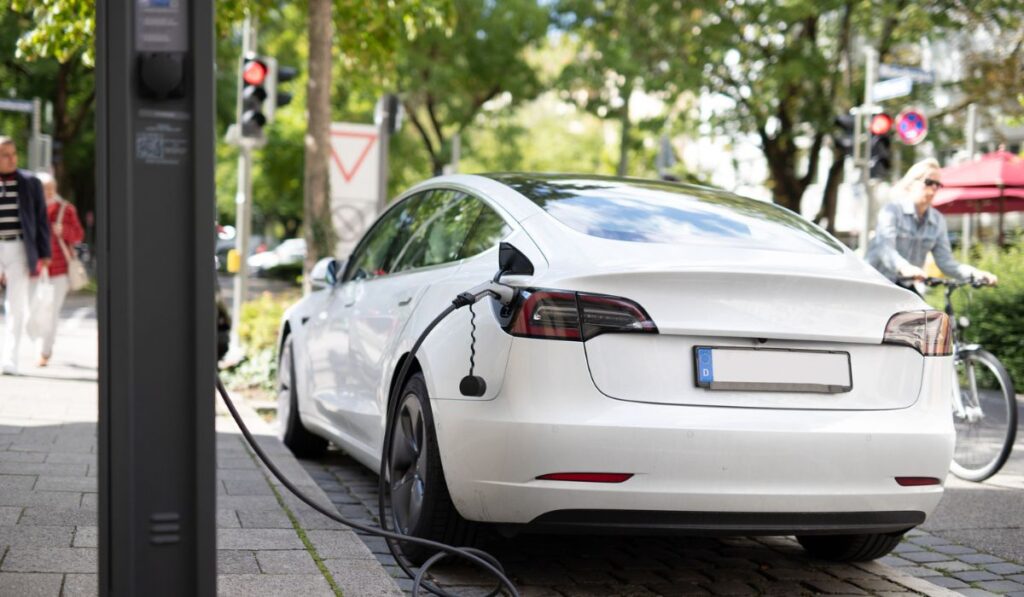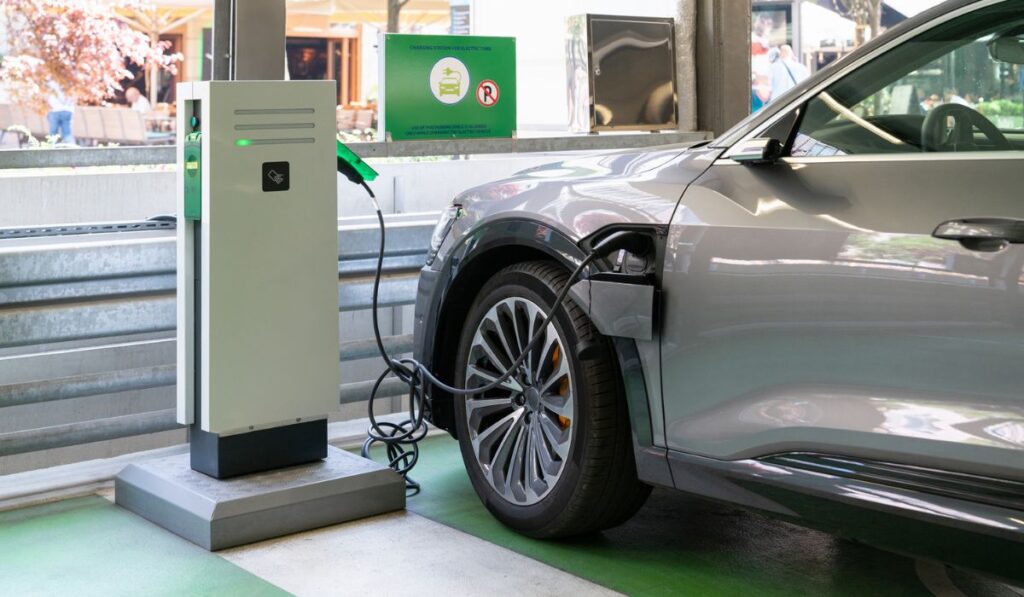Electric vehicles are gaining more popularity and interest each year. Some EV models and manufacturers are creating more affordable options for the average consumer. So, how much does an electric car actually cost?
Electric cars cost anywhere from $30,000 to well over $40,000. The costs to charge an EV at home will vary but might cost anywhere from $35 to $135 per month. Electric cars are more eco-friendly and can save money on gasoline and maintenance costs over the long run in certain cases.
Don’t worry If you’re still on the fence about purchasing an electric vehicle. There are a lot of different factors to consider besides aesthetics and travel distance. So, how much do electric cars cost, and are they more efficient than standard cars? Here’s everything you need to know and more.
What is the Average Price Range of Electric Cars?

Electric vehicles are typically more expensive to purchase than standard internal combustion engine models. New electric cars will typically cost around $30,000 to $40,000 and above, while the cheapest gas-powered car costs about half that at $15,000.
However, owning an electric car might save consumers money down the line. Not to mention, consumers can save anywhere from $7,500 to $12,000 on electric vehicles using federal tax credits, depending on the circumstances.
How Much Does it Cost to Charge An Electric Car?
The cost to charge an electric vehicle will vary depending on several different factors. However, you can get a rough estimate using these three metrics:
- Number of miles driven per month
- Electric vehicle efficiency measured in kilowatt-hour per mile
- The local cost per kWh, measured in cents
Electricity consumption is measured in kilowatt-hours or kWh. To determine your home’s kWh, you can take the total cost of electricity from your last utility bill and divide it by the kWh used. You might end up with something around $0.1375 or around 10 to 15 cents per kWh.
From there, you can determine how much it will cost to charge your EV. Take the EPA rating of your electric vehicle. Let’s say your model is rated to use 25 kWh per 100 miles or 0.25 per mile.
Multiply that number by the total number of miles you drive per month to calculate the total kWh consumption. Then, multiply that number by the overall kWh used. Here’s a quick example to give you a better idea:
- 0.25 kWh x 1,000 miles = 250 kWh
- 250 kWh x $0.1375 = $34.37
In this example, you would spend roughly $35 per month on charging if you drove your electric vehicle 1,000 miles per month. Keep in mind that these are rough estimates, and every EV will vary depending on the circumstances.
What About Fast Charging?
EVs can be charged using fast chargers scattered across the United States. Some electric vehicle owners suggest using these chargers as a last resort, as they can add hefty prices when used too often. But how much do they really cost?
Unfortunately, an accurate answer can be hard to determine. DC fast chargers vary in speed ranging anywhere from 24 kW to 350 kW. Some chargers bill by kWh, while others bill by the minute.
You might be charged 20 to 30 cents per kWh on average, while some chargers cost over 40 cents per kWh.
However, if we take a fee of $0.28 per kWh, we can determine a rough estimate. If you were to charge your EV 250 miles at a DC fast charging station that charged $0.28 per kWh, you would have to pay roughly $19.60.
Keep in mind that these are only rough estimates and don’t include taxes or other circumstances. But as you can see, DC fast charging can add expensive fees to your total electric vehicle charging costs depending on how often you use them.
Are Electric Cars More Efficient?
In some cases, electric cars can be more efficient than standard gas-powered vehicles. Electric vehicles are more eco-friendly, don’t require gas, and have some unique performance benefits comparatively.
Electric vehicles don’t emit any fumes. These vehicles don’t have exhaust pipes and are nearly 100% emission-free. These benefits make electric vehicles excellent solutions to environmental pollution and waste.
EVs don’t require any gasoline or diesel to get from point A to B. Some models even recharge their batteries when braking, making for even more energy efficiency. This can make them more affordable in some cases.
Electric cars can have a smoother ride in some cases. These models might have smoother and stronger acceleration, as well as quieter rides. Standard engines might be noisier and less smooth in some cases.
Are Electric Cars More Expensive than Gas-Powered Cars?

Generally speaking, electric vehicles are more expensive than traditional gas-powered cars. Electric vehicles will cost anywhere between $30,000 to well over $40,000 to purchase off the lot. The least expensive 2022 standard internal combustion engine vehicle costs around $15,000 in comparison.
However, new electric vehicles can qualify for federal tax credits ranging from $7,500 to $12,000, depending on the criteria. These tax credits can transform a $40,000 electric car into an affordable vehicle under $30,000.
Not to mention, EVs accrue annual savings on gasoline. Some electric vehicle models save $800 to $1,400 on gas annually, depending on the circumstances. These savings can build up over time, saving anywhere from $2,400 to $4,200 over three years.
Electric vehicles also require fewer maintenance costs than standard internal combustion engine cars. Some studies have found that electric vehicle owners spend anywhere from $1,500 to $3,000 less on operations and maintenance costs each year. These savings can add up over the long haul, making EVs a less expensive option over time.
So what’s the main issue with electric vehicles? The high upfront costs and finding one to purchase. Electric vehicles still have higher premiums than standard internal combustion engine models and can be difficult to find due to supply chain issues and high demand.
So, in the long run, EVs might be more cost-effective than standard internal combustion engines if you can find one.

דירות דיסקרטיות בקריות Israel night club
Thursday 18th of August 2022
Can I just say what a comfort to discover someone that actually knows what theyre discussing on the internet. You definitely know how to bring an issue to light and make it important. More people must check this out and understand this side of the story. I cant believe you arent more popular since you certainly possess the gift.